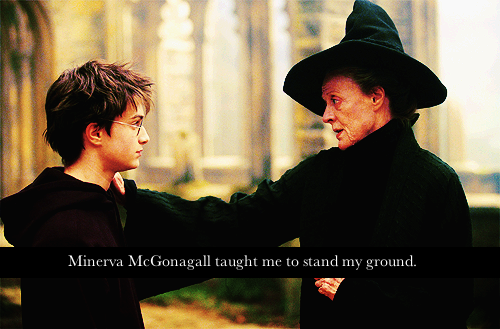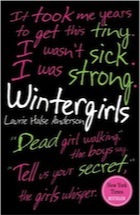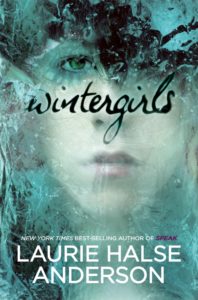(Note – this is a long and important post. But there is a chance to win books for your classroom at the end, so keep reading.)
Oh. My. Goodness.
A couple of days ago I tweeted a photo of a letter I’d received.

In follow-up tweets I explained that it breaks my heart not to have the time to answer letters like this. I love engaging with readers, I love that they reach out to authors. But I’m on deadline, and won’t have time to write back until this student is halfway through 9th grade.
Plus, I’ve already provided many of the answers to these questions on my website; writing advice and interviews and general questions.
I always make time for correspondence (written letters, email, and private messages on social media) from readers who are victims of sexual violence, bullying, eating disorders, depression, etc. In addition to that, this year I have to write two books, spend months on the road giving presentations, hold Skype visits, do other author-business things, as well as hang out occasionally with my family. There are simply not enough hours in the day to do it all.
This makes me feel HORRIBLE.
It was a hard thing to admit publicly, but I write a lot about hard things. My alternative would have been to keep ignoring the problem, which I’m sure frustrates the letter-writers who are waiting on a response, especially when their grade hinges on it.
I tweeted this because I wanted to interact with teachers to see if we could figure out a more practical solution. I did not expect my timeline to blow up.
Most of the comments were kind and supportive. A number of my fellow authors retweeted the original post, and added their own frustration with this situation. One received 150 letters this week. Another had to remove all of her contact info from her website to stop the flood of mail that she has no way of answering. Every author has had the experience of getting letters which explain that hearing back from the author is a requirement for the student to get a good grade. Finding the time to answer student letters is a huge problem for many kidlit writers.
Some commenters were not supportive. I don’t think they like me very much.
“It makes you look like you’ve stopped feeling really lucky to have what you have and enjoy the acceptance and bridge you’ve forged between girls and their secrets. Seriously.”
“Young writers often have these questions and want a personal reply not info from a website.Take the time to give it instead of complaining. Nurture young writers!”
A few people responded defensively, angry that I had “blamed teachers.” Which was not my intention at all.
The thing is, we all care about kids; kidlit authors and illustrators, educators, families – we dedicate most of our lives to creating and/or providing books to children and teens because we value literacy and care deeply about young people.
The model of students writing to authors is several generations old now. It started long before social media, author websites, book festivals, or Skyping. It began when authors stayed home to write books, and publishers took care of marketing and publicity. The world of publishing has changed drastically since then. There are few authors who have the time or resources to answer every single letter that comes in.
What hasn’t changed is the need for students to connect with authors.
So, my friends. Can we talk about this?
A number of educators provided solutions in my Twitter feed. Some have their students write notes to authors in which the students say what they felt about the book, but without questions, or the expectation of a response. Others tweet class projects – if the authors see the tweet and Like it, that’s a bonus. Still others take advantage of the resources on author websites and other places (for example if your students are researching Jacqueline Woodson, be sure to check out Poetry Foundation and CBC Books ).
A couple of years ago I made pre-printed postcards that thanked the student for writing, but explained I didn’t have time to answer questions… but honestly, it felt kind of cheesy to do that.
Given that authors do not have time-turners (except possibly J.K. Rowling), how can we best engage with students? What kind of classroom model makes sense, given the changes in publishing and technology of the last decade?
I’d love to know what you think about this. Please leave suggestions and comments below. And thank you for listening!
PS – for those of you who read all the way through this, here’s your reward. I will give a book to the first 10 classes who post a comment to this blog with at least 10 good questions that I haven’t yet answered on my website. Teachers, if you respond to this, please include a mailing address.














